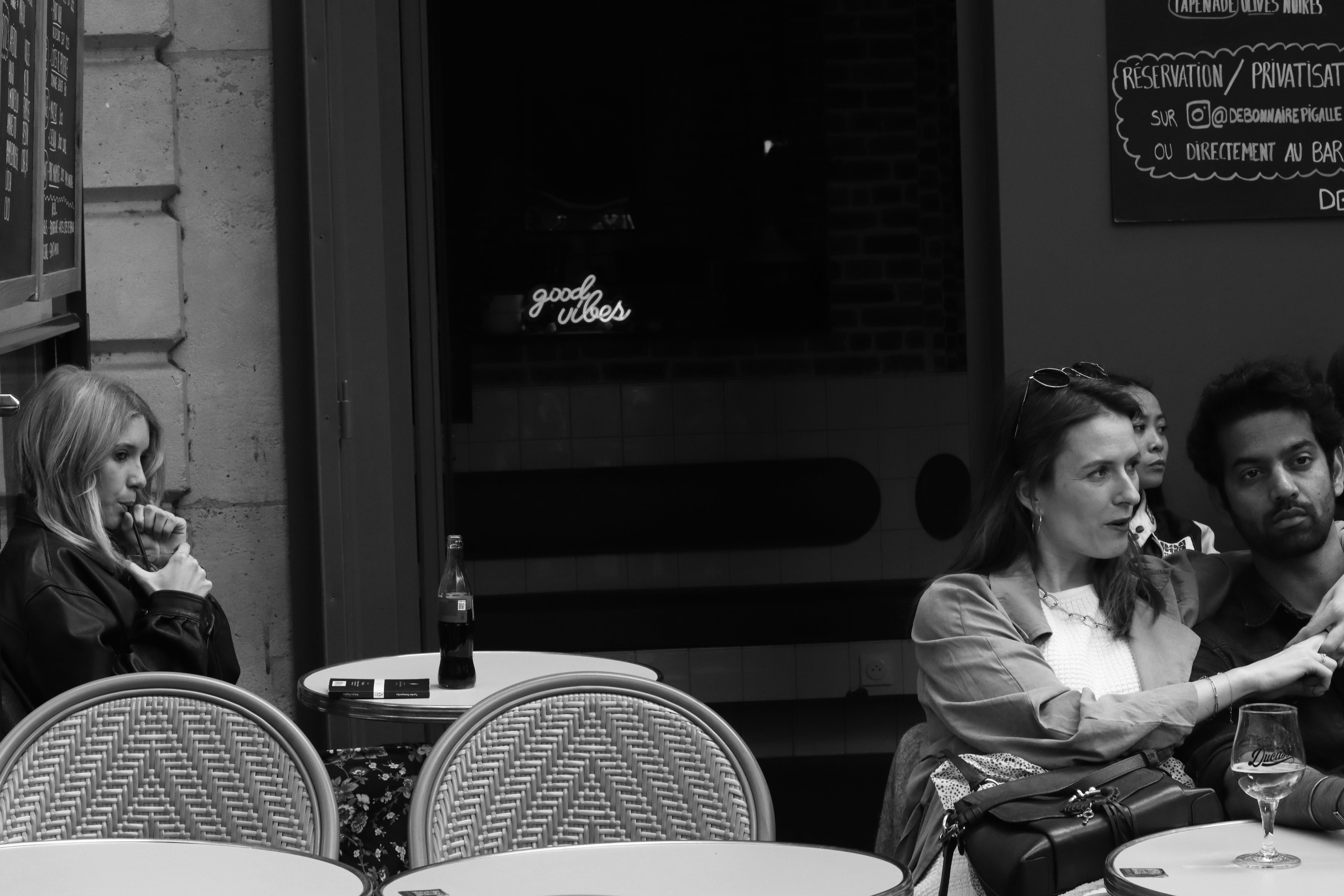Why Gen Z Struggles to Move On

Letting go was never easy, but for Gen Z, it often feels nearly impossible. Whether it’s an ex who lingers on your following list or a best friend turned stranger who still watches your stories, moving on has become a complicated and often painful process. In an age where everyone is just a few taps away and memories—both good and bad—are constantly resurfaced by algorithms, letting go doesn’t always feel like an option. Why does it seem so much harder for this generation to move on?
To better understand what’s behind this struggle, I spoke with several Gen Z individuals — all students at AUP — about their experiences with letting go, from friendship fallouts to romantic breakups. Alexandra Peña Jiménez, 22, shared, “Even when something ends for a good reason, it’s hard to just switch off the emotional connection. You get used to someone being part of your routine. It’s like mourning a version of your life.” Her words reflect a common experience: letting go isn’t just about the absence of a person—it’s about untangling the daily emotional patterns they became a part of.

The Illusion of Disconnection
Social media has fundamentally altered what it means to move on. In a pre-digital world, relationships often ended with silence and distance. Now, even after a breakup or fallout, it’s rare for someone to truly disappear. Story views, algorithmic suggestions and archived conversations keep people tethered to our lives in small, persistent ways. You may not speak to them, but you’re still aware of them—their new haircut, their weekend plans, their gentle entry into someone else's story.
What complicates this even further is the performance aspect. Gen Z grew up learning that how we present ourselves online matters — that even something as intimate as heartbreak can become content. There’s a subtle but constant pressure to look like you’ve moved on, to frame healing as a kind of comeback.
“You want to show them that you’re happy without them, that you don’t need them, that you’re doing better—even if deep down you haven’t fully processed everything yet,” Selene Almazan, 23, remarks. “In my experience, that pressure usually comes from how the relationship ended. Like, if they hurt you or things ended badly, you kind of want them to see that you’ve moved on, even if you haven't really.”
That doesn’t mean people are being insincere — it just means the boundary between real closure and curated closure gets blurry. And when you start performing detachment before you’re ready to feel it, the actual process of letting go slows down.
Digital Permanence and Emotional Loops
Unlike human memory, digital memory is sharp, unfiltered and always accessible. Where our minds might naturally soften or blur past experiences over time, our phones preserve everything in high definition. A voice note, an old message thread or a photo taken in happier times is only a scroll away. This ability to instantly revisit the past — often without warning — creates emotional time capsules that pull people back into relationships they’re trying to move beyond.
Moreover, because these records are so easily accessible, many Gen Z individuals fall into emotional loops: rereading messages, replaying videos and reliving moments not as memories but as live experiences. Even with the emotional weight of seeing constant reminders that someone is no longer in our lives, some try to make sense of those traces, using them to reflect on what went wrong.
“It’s one of my favorite things to do, even outside of losing someone — just looking at old photos or texts,” said Yamilett Suárez, 21. “It makes me feel nostalgic, but in some cases, the messages remind me why it had to end or why it wasn’t working. I think it’s important to remember why it ended in the first place.” Yamilett wasn’t the only one who brought this up — another of the three respondents described how revisiting old conversations helped them process what went wrong and gain clarity. In this environment, forgetting becomes not just difficult but actively discouraged by the design of the platforms themselves.
Emotional Intensity, FOMO and the Overthinking Trap
While older generations often formed and ended relationships within physical proximity and real-time rhythms, Gen Z relationships are often accelerated by the constant availability of digital communication. Emotional bonds form quickly, and with that comes a sense of depth that makes detachment feel more like grief than simple distance. Friendships and romantic connections are no longer confined to school halls or weekend meetups — they live in your pocket, in your DMs, 24/7.
When those ties break, FOMO, fear of missing out, adds another layer of difficulty. Watching someone move on, attending events, laughing with new people or even just existing without you in their active lives, can trigger a profound sense of exclusion, even if the relationship had run its course. This isn’t just about jealousy; it’s about feeling suddenly irrelevant in someone else’s story.
Gen Z is often described as one of the most emotionally self-aware generations, shaped by unprecedented access to therapy discourse, online mental health content and emotionally open social spaces. This environment encourages deep self-reflection—from analyzing attachment styles and trauma cycles to asking “what went wrong?” after even brief connections.
While this kind of emotional literacy can lead to meaningful personal growth, it also carries a downside: over-analysis. Some individuals become stuck in cognitive loops — assigning meaning to every interaction, labeling every emotion and trying to rationalize heartbreak as if it were a puzzle to be solved rather than an experience to be lived through. This dynamic is reflected in a 2024 Hinge report, which found that 56% of Gen Z daters have overanalyzed someone’s “digital body language,” leading to stress and miscommunication.
For Yamilett, letting go isn’t about forgetting or deleting. “I think in our generation, letting go has become a process of healing and self-discovery,” she said. “Growing out of a situation forces you to look inward and reflect on things you’d like to change moving forward.”
Releasing the past, in this context, is not about forgetting someone — it’s about choosing not to be constantly reminded of them. And for a generation raised on connection, that choice is far from smooth. “Letting go means not letting whatever happened in the past dictate your feelings today,” said Zoë Smith, 20. “It’s about limiting its power over your actions and how you think—so that you can experience a new future.”






